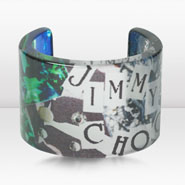
Luxury consumers are concerned with the social responsibility exhibited by high-end brands and will spend their money accordingly, per CIBJO, the World Jewelry Confederation. The global recession has caused high-income consumers to reconsider their values and beliefs and increasingly view corporate responsibility an important attribute of the companies they buy from. Brands need to take note and invest more money and energy into corporate responsibility initiatives. “[This study] argues that post-recession luxury consumers have changed for good and that corporate responsibility will be directly linked to a luxury company’s profitability in the future,” said Jonathan Kendall, president of the marketing and education commission at CIBJO, Bern, Switzerland. “Companies without positive, responsible corporate responsibility policies will find it harder to attract the talented new breed of executives, designers, marketers and financial brains who have grown with a collective conscience of how to run business on sound, ethical principles,” he said. “[This study] predicts an end to corporate responsibility espousing because it will become so ingrained in the way luxury businesses operate that there will simply be no need to talk about it anymore.” CIBJO researched for the report between late 2009 and 2010, and included observations from discussions with members of the Luxury Marketing Council. Brave new world CIBJO cited a poll published by Time Magazine in 2009 that found that nearly 40 percent of United States consumers purchased products because they had positive feelings about the social or political values of the company that produced them. Luxury brands who do not pursue corporate responsibility initiatives more aggressively will find themselves facing issues such as diminished sales and difficulty recruiting and hiring the best personnel, who will be attracted to companies with more distinguished social presences. “The key challenge in the current uncertain market conditions is to balance investment on corporate responsibility so that market share can be maintained without jeopardizing profits,” Mr. Kendall said. The executive suggested a number of approaches to bolstering corporate responsibility efforts. First, he suggested that luxury brands should change the organizational mindset about such initiatives, and include all levels of the company in developing a corporate responsibility program. He also said it was important to educate staff and shareholders about why corporate responsibility was good for business via methods such as demonstrating its positive impact on return on investment. Additionally, brands should adopt a softer communication style, so that the media and public do not jump to the cynical conclusion that corporate responsibility is being practiced merely to score PR points. “Many global luxury brands have been burnt by the experience of heightened public and media attention in a 24/7 news and digitally networked world,” Mr. Kendall said. “Of course, information on responsible practices should, and indeed must, feature on interfaces for external communication, such as a company Web site,” he said. “But, a softer communication style is paramount in the new era of business.” Finally, he said that luxury companies should embrace transparency as a means of underlining the new philosophy. Mr. Kendall also issued warnings to luxury marketers, saying that the mantra of corporate responsibility is something that should resonate throughout an organization and its brand’s values, rather than serving simply as a marketing tactic. “Every single person in the organization needs to make a difference, whether it’s through becoming more environmentally aware or putting something back into the local community,” Mr. Kendall said. “Corporate responsibility in the new post-downturn is about people power, with small changes adding up to make a big difference,” he said. “This does not need to be a global program. “Individual craftspeople or single store operators can also embrace this approach by investing in local projects that benefit in local people – they are equally valuable.” The report pointed to companies such as Jimmy Choo and Estée Lauder as companies who have successfully demonstrated corporate responsibility. In particular, Jimmy Choo has donated 25 percent of revenue from its Project PEP collection to a South African Women's Center and the Elton John Aids Foundation. Likewise, Estée Lauder earned admiration for its efforts in the Breast Cancer Awareness Campaign. Luxury gives back Some luxury sectors have already been ramping up corporate responsibility initiatives recently. For example, upscale automakers such as Lexus have been promoting their image as environmentally conscious (see story). The luxury industry as a whole should adopt the same mentality or face the consequences, per CIBJO. “The key to post-downturn corporate responsibility is to just do it,” Mr. Kendall said. Final Take Peter Finocchiaro, editorial assistant at Luxury Daily, New York
